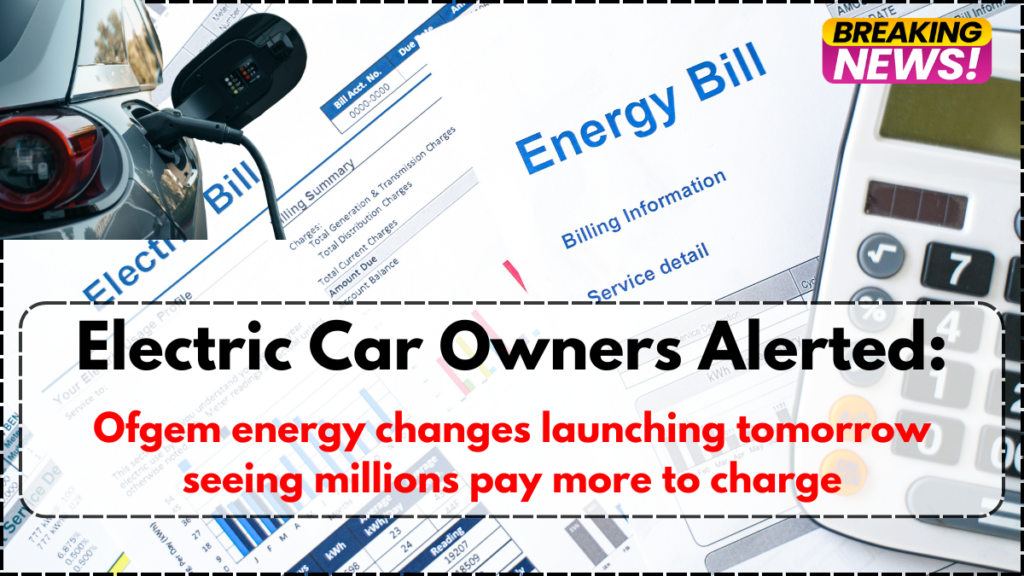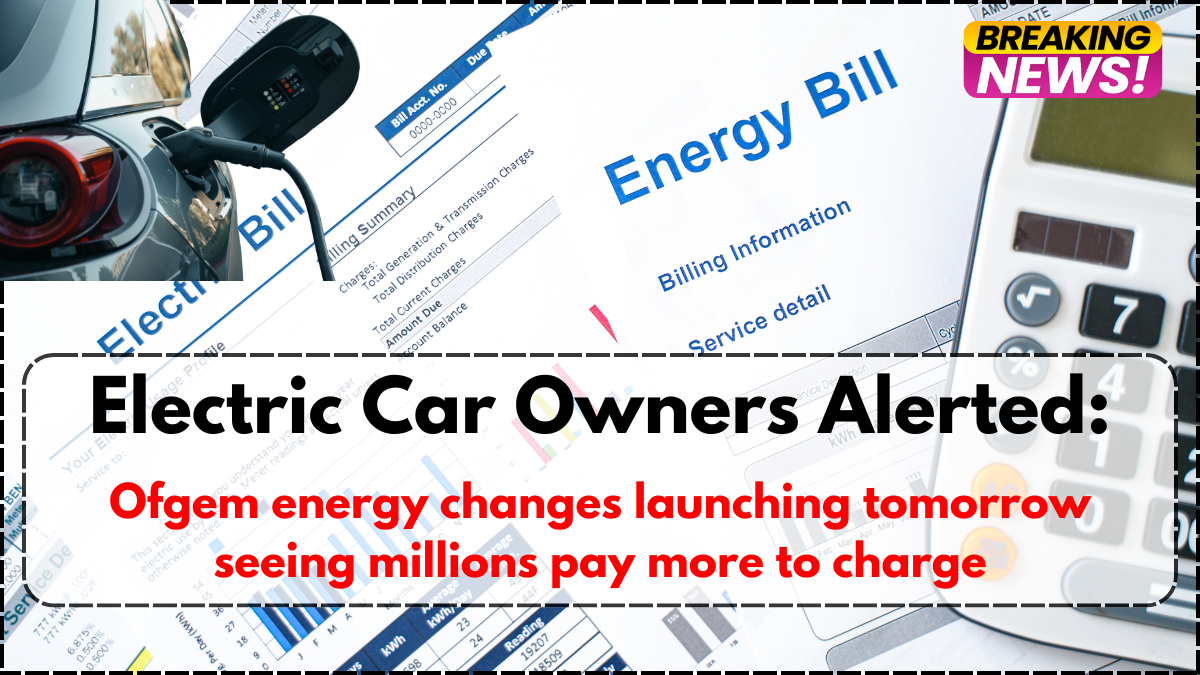From April 1, 2025, electric vehicle (EV) owners across the UK will face a significant increase in their charging expenses. Ofgem has implemented a 6.4% rise in the energy price cap, a move that directly affects the cost of charging electric cars both at home and at public stations.
With over 1.2 million EV drivers in Britain, this change means a collective monthly expenditure of approximately £35 million on EV charging. This is a notable increase of £2.84 million compared to March 2025. As energy prices continue to rise, the burden on EV owners intensifies.

New Vehicle Excise Duty for EVs
Alongside higher energy costs, electric car owners will no longer enjoy a tax exemption. Starting in April 2025, they will be subject to an annual Vehicle Excise Duty (VED) of £195. This marks a major policy shift as the government aims to standardize taxation across vehicle types, citing the need for a “fairer tax system.”
Breakdown of the Charging Cost Increase
Carmoola’s recent analysis outlines the impact of these changes on everyday EV users. Based on a 60kWh battery and average monthly use of 108kWh at home, the cost to fully charge an EV has increased:
| Charging Type | Previous Cost | New Cost | Increase per Charge |
|---|---|---|---|
| Home Charger (60kWh) | £14.91 | £16.21 | £1.30 |
This adjustment translates to an annual increase of £111 per household, depending on usage patterns.
Ofgem Price Cap and Its Wider Impact
The revised energy price cap, applicable until June 30, 2025, reflects recent hikes in wholesale energy prices, which account for nearly 78% of the total increase. The remaining 22% is driven by minor policy cost hikes and inflation-related factors, leading energy providers to pass the burden onto consumers.
Jonathan Brearley, CEO of Ofgem, emphasized that while any rise in household expenses is unwelcome, the UK’s reliance on global gas markets makes such volatility inevitable. Still, the current cap of £1849 for an average dual-fuel household on Direct Debit is 22% lower than prices during the peak of the energy crisis in early 2023.
Shifting to Fixed Tariffs
Since November 2024, over four million customers have transitioned from the standard variable tariff to fixed-rate energy deals. Currently, 11 million households are on fixed tariffs and will not be impacted by the new cap. Brearley advised consumers to explore fixed or off-peak tariffs, which may offer savings in light of the ongoing increases.
Expert Advice for EV Drivers
Aidan Rushby, CEO of Carmoola, recommended that EV drivers should prioritize home charging, especially if their energy provider offers reduced off-peak rates. According to a recent Carmoola survey, nearly one-third of UK drivers are hesitant to switch to EVs due to rising energy costs, a trend expected to grow with these new developments.
Conclusion
The April 2025 energy price cap increase places added pressure on electric vehicle owners already adjusting to broader cost-of-living challenges. With higher charging costs and the introduction of Vehicle Excise Duty, EV drivers must now navigate a new financial landscape. Proactive measures like choosing off-peak charging times and evaluating fixed energy tariffs may help mitigate these rising expenses.
FAQ
How much more will it cost to charge an EV from April 2025?
On average, it will cost an additional £1.30 per full home charge, based on a 60kWh battery. Over the year, this amounts to about £111 in extra charging costs per household.
Why are EV drivers being taxed now?
The UK government is introducing a £195 annual Vehicle Excise Duty for EVs to create a fairer tax system across all vehicle types, removing the previous exemption for electric vehicles.
Are fixed tariffs a better option now?
Yes, for many households. Fixed tariffs can protect consumers from fluctuating energy prices and are worth considering, especially as the price cap continues to shift.
Will public charging costs increase too?
Yes. As the energy price cap affects wholesale energy costs, public charging operators are likely to pass on the increase to consumers.
What can EV owners do to reduce charging costs?
Consider charging at home during off-peak hours, compare energy tariffs regularly, and look for providers offering EV-specific plans.
For More Information Click Here
Pari is a passionate writer known for captivating stories that blend imagination and reality. Inspired by travel, history, and everyday moments, Pari crafts narratives that resonate deeply with readers.




